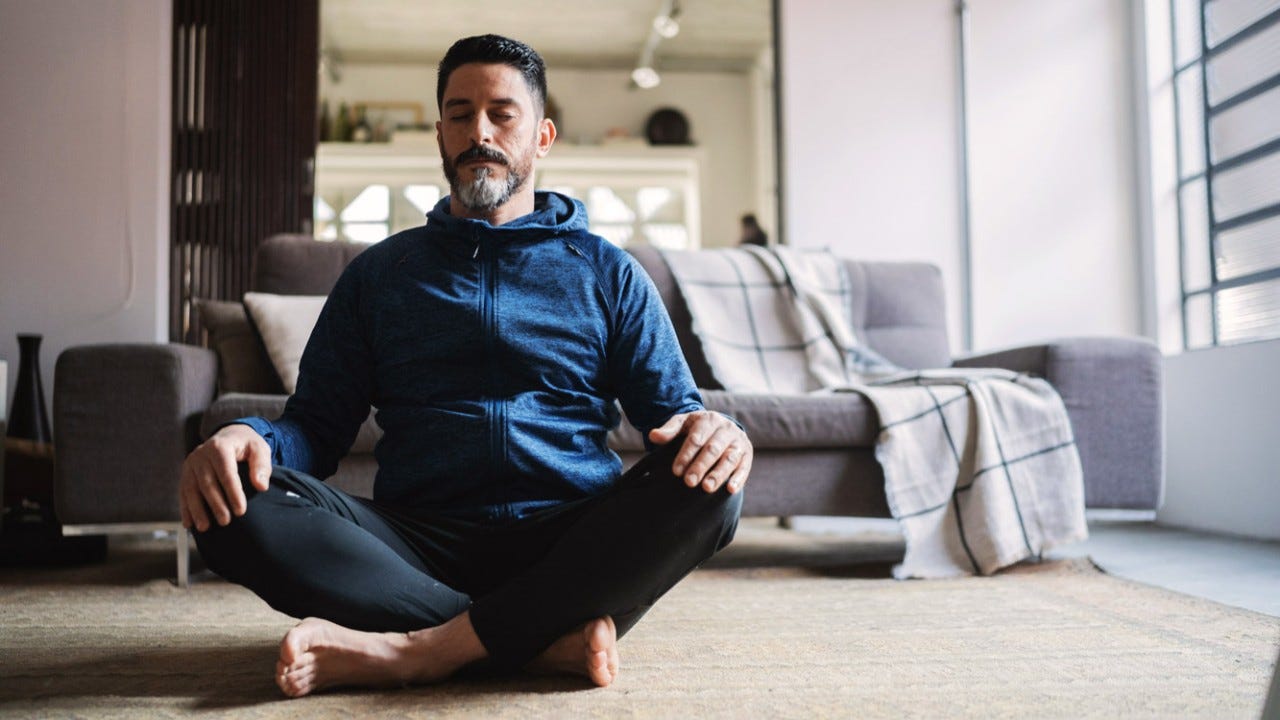Constant availability: chronic stress
When we’re in front of a screen, we often forget about our body. We breathe shallowly and tense our muscles. And this can have serious consequences.

Most of us are guilty of having a never-ending to-do list. Instead of mindlessly scrolling through social media at the bus stop to alleviate boredom, some people want to use their time as efficiently as possible.
One email less! A task delegated! A message checked! And so it goes on, hour after hour, day in day out. At home. At work. After the cinema. Before breakfast. Many of us are more connected than ever,
but this takes its toll on our body. From a neurobiological perspective, we need breaks. Our body has waking times and sleeping times. It needs tension and relaxation. We need to consciously take time out. Spend time in nature. We need to feel connected with our bodies.
Being available around the clock is harmful to health
Too much screen time can have serious consequences for your health, your body and your mind. Studies show, for example, that many people hold their breath when they are reading emails. This is known as email apnea.
We also tense up, breathe shallowly and can spend hours a day staring at the screen without moving much. This not only results in postural problems, but also triggers a flight-or-fight response in our body. In the past, when our body reacted with shallow breathing, a fixed gaze and tense muscles, it was responding to danger. It helped us flee from enemies or be better prepared to attack prey.
So, if we spend a lot of time in front of a PC with tensed muscles and breathing shallowly, our body releases stress hormones. And if we’re still in bed reading depressing news stories at 11 o’clock at night, the content signals to us that danger is imminent.
This is because our brain is made up of different areas. The oldest part is the brain stem, which is responsible for processing our primary emotions such as anger, fear and desire, i.e. our “primitive” reflexes.
Our brain stem works just as it did thousands of years ago, no matter how digital or modern our lives are today. When a red button flashes or we see that we have 450 new mails in our inbox, our body reacts just as it did back then in the wild when we were confronted with a dangerous animal: with fear.
Smartphone-induced chronic stress
Our system therefore triggers the release of adrenalin and cortisol – stress hormones that are designed to spur us into action. In the past, this was essential for survival and happened every few days. Today, we activate the same mechanisms with every new email - but unfortunately almost around the clock. The result: stress hormones are constantly released, but often not sufficiently reduced. In plain language: we suffer from a chronically high level of stress.
When we have non-stop digital stimulation and don’t take time-out to re-establish our hormone balance and general well-being, it’s no surprise that people are constantly stressed and tired, have difficulty sleeping, suffer from problems with their digestion or experience physical pain.
Six tips to balance our digital lives
The more digital your everyday life is, the more you need to ensure you achieve a physical balance. The following tips will help you do something good for your health.
-
Exercise
Even if you only do it for 10 minutes at a time. It’s about finding a way to reduce the level of stress hormones in your body. It can be anything that you enjoy: jogging, dancing with your children in the living room or swimming.
-
Shake, move and stretch your body
You don’t have to overdo it. Even a few minutes of physicality a day is more than most people allow themselves. In technical jargon, this is known as embodiment, i.e. exercises and actions that allow you to really feel at one with your body again. In a world where there is so much emphasis placed on the mind and we spend so much time in the digital space, these exercises are more important than ever. Moving, shaking and stretching the body can work wonders.
-
Get in contact with your body
For example, you could take an ice bath or go cycling in the rain. If our body is still for too long, we become more anxious and start to trust it and ourselves less. Taking a cold shower for just 30 seconds helps ground us and allows us to feel our body again. This calms our nervous system and helps reduce anxiety.
-
Do breathing exercises
If we stare at a screen for hours on end, our field of vision shrinks. This signalises to our body that we are under threat. So you should regularly look around, look to all four corners of the room one after the other, look into the distance.
-
Practice belly breathing
Many of us forget how to breathe properly as we grow up. Young children do it intuitively, but over the years we start to breathe shallowly and too fast. American author James Nestor has written a book on breathing, and some coaches offer breathwork exercises and courses to help us learn to breathe more deeply again. It’s easy to make a start: just breathe in for 4 seconds, hold your breath for 4 seconds and breathe out for 4 seconds. The more deeply you breathe into your stomach and the slower that you breathe in and out, the better it is for your nervous system.
-
Take breaks from your smartphone
It helps your body to regenerate. It’s a good idea to define a few simple rules: No screen time during activities such as eating, sleeping, taking a bath, socialising or walking. Start with small steps, such as leaving your smartphone at home for half an hour while you take a walk around the block. Or putting away all digital devices during the first and last hour of your day and instead try reading a book or doing meditation.


